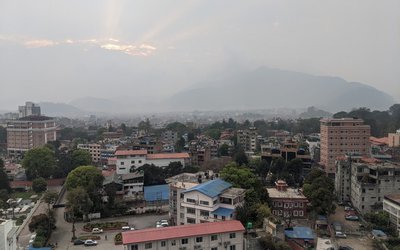You could say that the world is mechanized and that everything has come down to checks and lists, that professions like medicine too are now managed like factories. In fact this mechanized trend is happening whether we like it or not. Rather than one important person running the show, now it is a team effort with the system being given prominence over one the individual. In many ways this makes a lot of sense. But there is little surprise that experienced people who have been used to doing things in certain ways are now objecting to checklists because they may feel that the romance and the individual touch will disappear. They may have a point. But it seems like the weight of evidence is shifting in favour of checklikst whether we like it or not.
The lowly checklist seems to be the answer to avoiding medical mishaps. If you are seated in front in an aircraft and can see the pilots in the cockpit, have you noticed that they have a set of things to do which they then check off on a form before they fly the plane? It seems usage of a similar checklist will help doctors better treat their patients.
For the mundane tasks of washing hands to wearing gloves to prevention of bedsores in patients, there is a checklist that doctors and nurses now have to follow in many hospitals. Sometimes this is tiresome and boring for the health professional.
The person who highlighted the importance of the checklist in medicine is a Harvard surgeon and a writer, Dr Atul Gawande. His parents, also doctors, are Indian immigrants in the USA. Dr Gawande very cogently states that for generations after the first aviation checklist went into use, checklist finally now used in medicine catch mental flaws inherent in all of us -flaws of memory, thoroughness and attention. He thinks that the checklist provide a kind of a cognitive net. Now there are even studies to back him up in the usefulness of checklists.
For many people the humble checklist runs counter to our thoughts about what heroes should do, certainly not just tick off things like, did the doctor wear a mask for that minor procedure? The truly great are supposed to be daring with no protocol to follow. Dr Gawande thinks that our ideas on heroism need updating, and he tells the story of the “miracle on the Hudson” to bolster the case for checklists.
On January 15, 2009, a US passenger airplane stuck a large flock of Canadian geese over Manhattan, lost both engines and crash landed safely on the icy Hudson river. The journalists who covered the story were clearly disappointed because rather than talk about the amazing landing with romantic overtones, the captain of the plane emphasized the checklist that he followed that saved the lives of the passengers.
In the world of surgery, checklists can be especially very relevant. With his team Dr Gawande devised a ninety-second checklist that reduced deaths and complications by more than one-third in eight hospitals around the world, at essentially no extra cost and for almost any kind of operation. All of this seems too good to be true, and yet the facts speak for themselves. Checklists clearly are relevant for Nepal.
- TANAHU HYDROPOWER PROEJCT: A Significant Achievement
- Apr 15, 2024
- AMBASSADOR HANAN GODAR: Sharing Pain With A Nepali Family
- Mar 30, 2024
- VISIT OF KfW AND EIB TO NEPAL : Mission Matters
- Mar 25, 2024
- NEPAL BRITAIN SOCIETY: Pratima Pande's Leadership
- Mar 24, 2024
- NEPAL ARMY DAY: Time To Recall Glory
- Mar 15, 2024
















